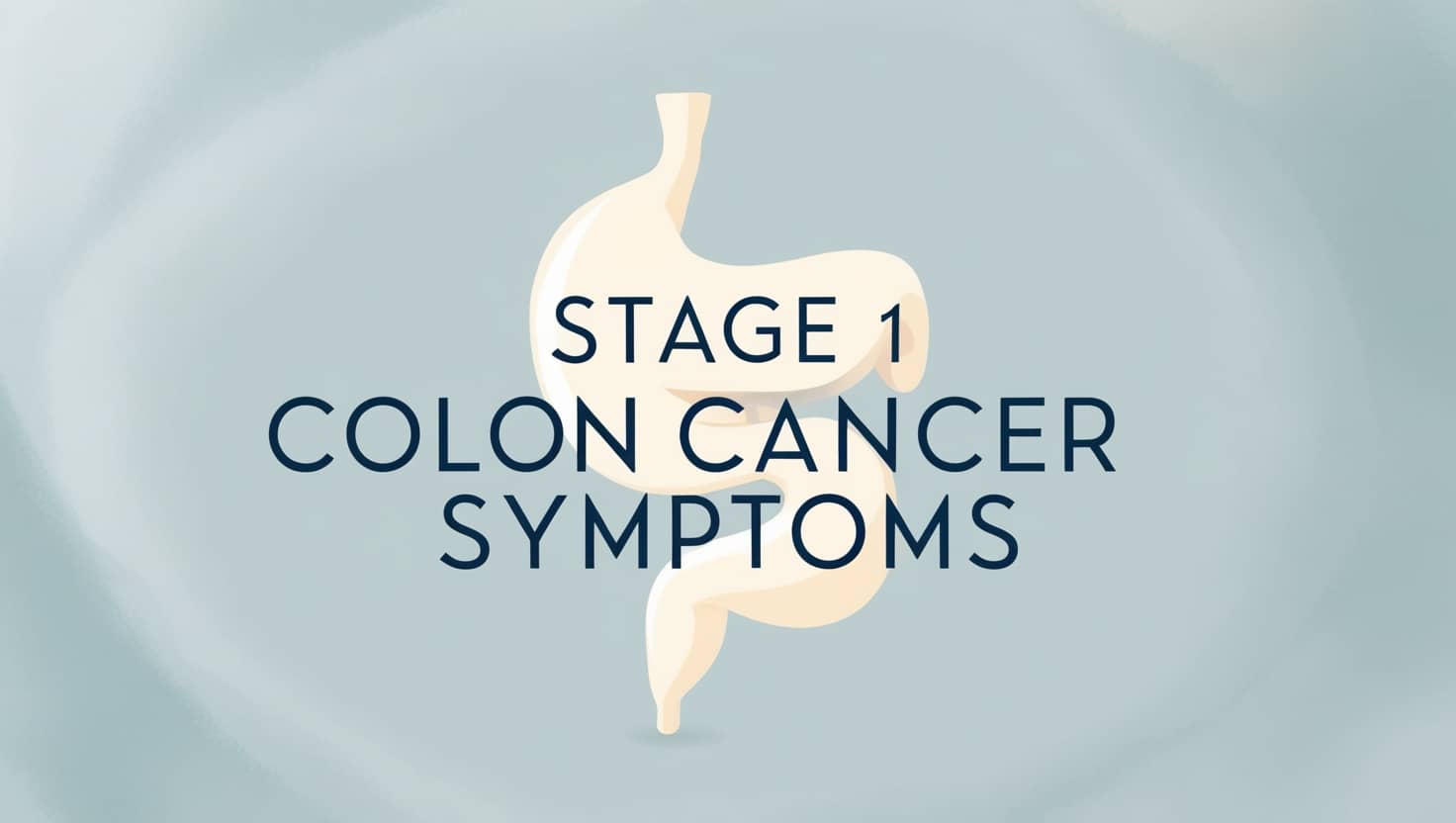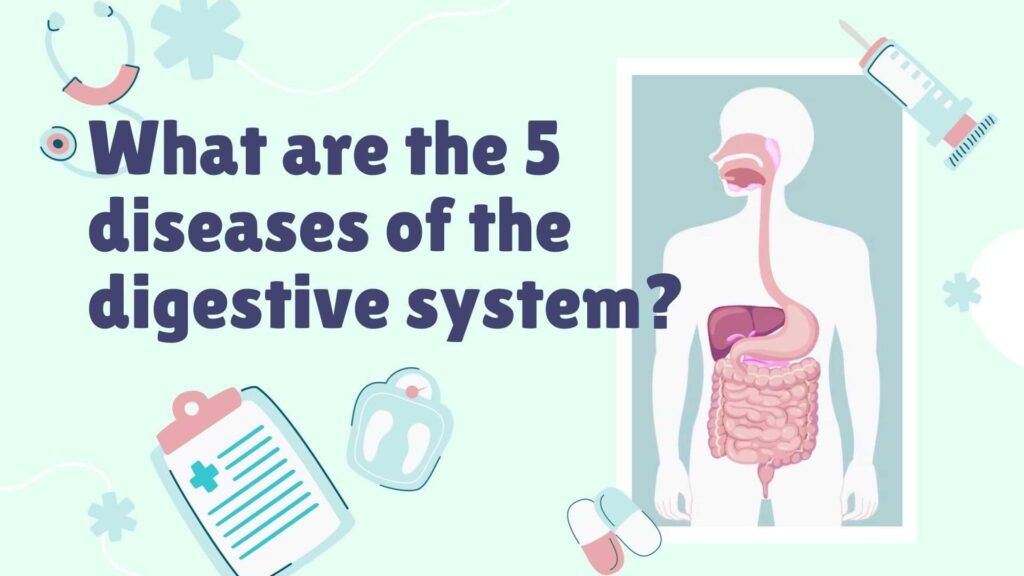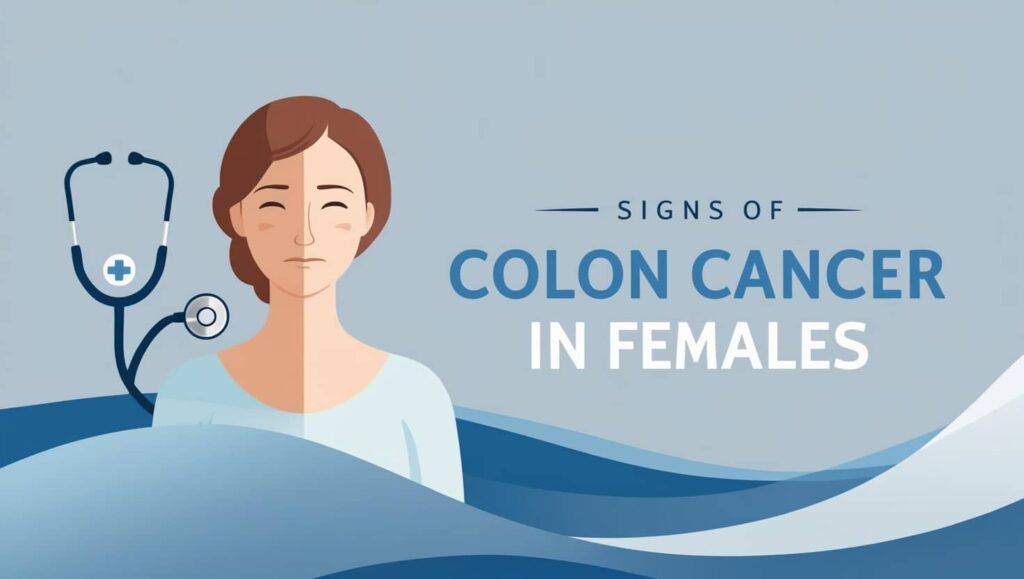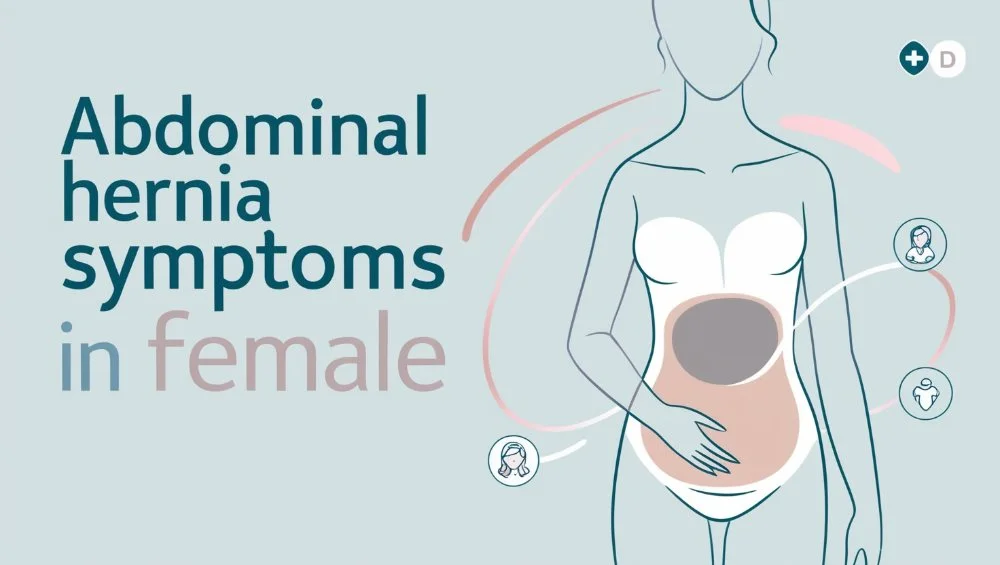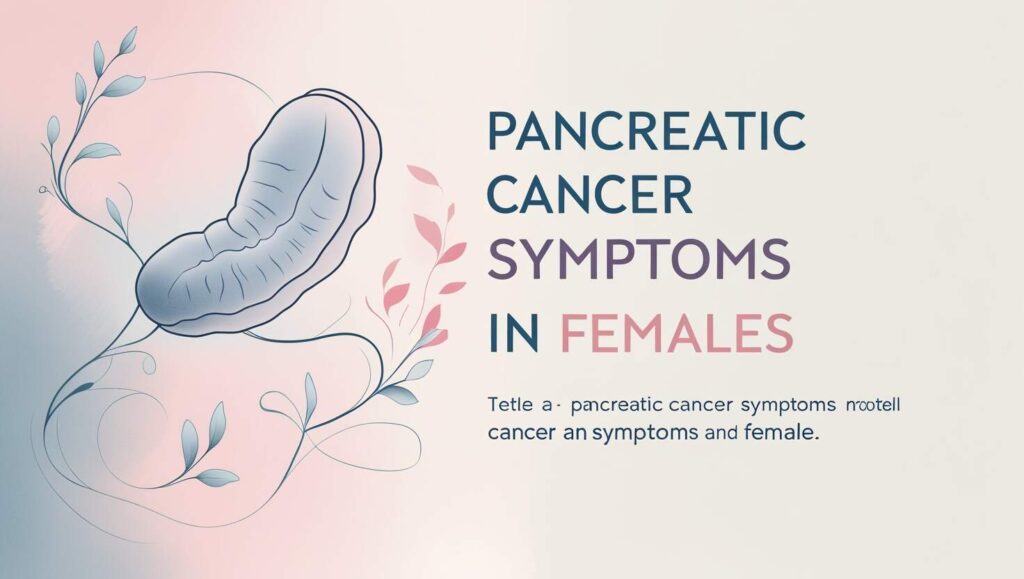Colon cancer is one of the most frequent types of cancer, and early detection is critical to preventing consequences. Stage 1 colon cancer symptoms may not be immediately apparent.
Thank you for reading this post, don't forget to subscribe!This article will illustrate the common signs that may indicate the presence of colon cancer in its early stages, as well as strategies for early detection. Don’t stop here; read on!
Digestive System Changes to Watch For
If any abdominal growth in the colon is not treated, it might lead to cancer. As the tumor expands beyond the intestine’s inner wall at the first stage.
Maybe there aren’t early signs affecting the digestive system. But if you have predominant bowel habits may indicate stage 1 colon cancer symptoms, that include:
- Constipation or diarrhea.
- Unexpected weight loss.
- Red or black stool.
- Nausea.
- Weaknesses.
- Anemia.
- Feeling full.
- Abdominal discomfort.
- Poop is Stringy.
Blood in Stool: What It Could Mean
The presence of the blood in the stool may be alarming to stage 1 colon cancer symptoms. However, it is crucial to highlight that the presence of blood in the stool does not always indicate cancer.
This may be due to the presence of polyps, which they’re noncancerous growths on the colon wall, but they may cause bleeding responsible for the appearance of blood in the stool.
In addition, other illnesses that can cause gastrointestinal bleeding include:
- Peptic ulcers.
- Inflammatory diseases such as Crohn’s disease.
- Hemorrhoids.
Related: Signs of Colon Cancer in Females
Unexplained Weight Loss and Fatigue
Unexplained weight loss, especially when accompanied by a loss of appetite, is a major warning sign that should be investigated, as it may suggest underlying medical issues such as colon cancer or additional diseases.
Cancer can cause the production of particular chemical molecules known as cytokines into the bloodstream, which contributes to muscle and fat loss.
As a result, this can affect metabolism and the body’s food processing, leading to a variety of results, including:
- Disruption of hormones that regulate appetite.
- Fatigue and weakness.
- Cachexia is a colon cancer related illness in which the body burns calories quicker than usual and changes how it processes proteins, carbohydrates, and fats, leading to skeletal muscle loss.
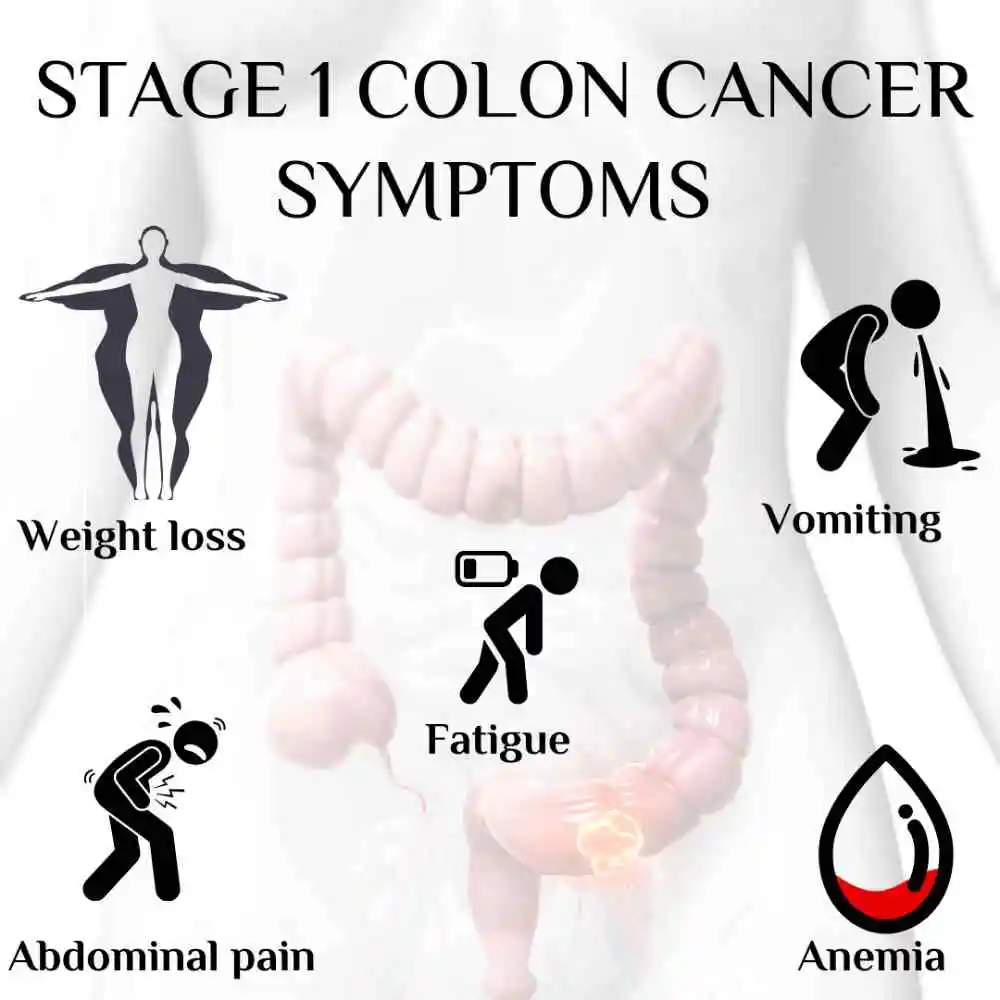
Abdominal Pain and Discomfort
One of stage 1 colon cancer symptoms is abdominal pain, which is frequently accompanied by cramps, a bloated, burning, and uncomfortable sensation.
This happens because of the tumor’s growth, which could obstruct food transit. Unexpected pain may also be influenced by the tumor’s location. These factors may result in different levels of abdominal discomfort as the tumor grows.
Screening and Early Detection Strategies
Colon cancer screening involves looking for cancer before any symptoms show, allowing abnormal growth to be detected early on before it spreads. This early detection enables doctors to deliver more effective treatment.
These screen tests include:
- Fecal occult blood test
- Colonoscopy.
- Sigmoidoscopy.
- DNA stool test.
The fecal occult blood test (FOBT)
Blood in the stool can be hidden, called occult blood may be invisible to the naked eye, but it can be discovered via specialist tests. There are two main types for this test such as:
- Guaiac based FOBT, This test detects the presence of blood in the feces using a chemical called guaiac. It is based on the reaction of guaiac with hemoglobin in the blood.
- Immunochemical FOBT, The method employs antibodies to identify human hemoglobin in the feces. It is regarded as more accurate and specific than the guaiac test.
Colonoscopy
A colonoscopy is a process that examines the colon using a thin tube, a light, and a lens that is called a colonoscope. It is utilized to extract any malignancies or abnormal tissues, which are subsequently sent for microscopic analysis. The tube enters the colon through the rectum.
Sigmoidoscopy
The sigmoid colon, also called the pelvic colon, is the section of the large intestine closest to the rectum and anus.
Sigmoidoscopy is a procedure that employs a sigmoidoscope, which is structurally and functionally similar to a colonoscope. It is introduced into the rectum and into the sigmoid colon for inspection.
DNA stool test
This test detects genetic abnormalities in stool cells that could suggest the existence of colon cancer.
Read Also: Stage 1 Cervical Cancer Symptoms
Summary
Stage 1 colon cancer symptoms include constipation, diarrhea, unexpected weight loss, red or black stool, nausea, anemia, abdominal discomfort, and stringy stool. Blood in the stool does not always indicate cancer. Other illnesses that can cause gastrointestinal bleeding include peptic ulcer.
Unexplained weight loss and fatigue are warning signs of colon cancer. Cancer secretes cytokines into the bloodstream, leading to muscle and fat loss. Abdominal pain and discomfort are symptoms of stage 1 colon cancer, often accompanied by cramps, bloating, burning.
Screening and early detection strategies include fecal occult blood tests, colonoscopy, sigmoidoscopy, and DNA stool test.
References
- Centers for Disease Control and Prevention. (n.d.-a). Symptoms of colorectal cancer. Centers for Disease Control and From CDC
- Duan, B. (2022, September 30). Colorectal cancer: An overview. Gastrointestinal Cancers [Internet]. From NIH
- Colorectal cancer signs and symptoms: Signs of colorectal cancer. Signs of Colorectal Cancer | American Cancer Society. (n.d.). From American Cancer society
- Kuo, Y.-H., Shi, C.-S., Huang, C. Y., Huang, Y.-C., & Chin, C.-C. (2018, April). Prognostic significance of unintentional body weight loss in colon cancer patients. Molecular and clinical oncology. From PubMed
- Ni, J., & Zhang, L. (2020, July 9). Cancer cachexia: Definition, staging, and emerging treatments. Cancer management and research. From PubMed

